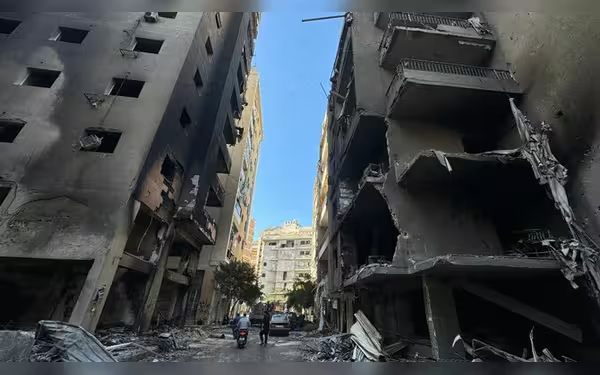Sunday, December 22, 2024 11:54 PM
Health Workers Death Toll Reaches 226 in Lebanon Conflict
- 226 health workers killed since October 7, 2023.
- 187 attacks on healthcare facilities reported in Lebanon.
- 47% of healthcare attacks resulted in fatalities.
 Image Credits: arabnewspk
Image Credits: arabnewspkThe WHO reports 226 health workers killed in Lebanon since October 7, highlighting severe impacts on healthcare amid ongoing conflict.
Since the onset of the conflict in Gaza on October 7, 2023, Lebanon has witnessed a tragic loss of life among its health workers. According to the World Health Organization (WHO), nearly 230 health workers have been killed in Lebanon due to the ongoing violence. This alarming statistic highlights the severe impact of the conflict on those who are dedicated to saving lives.
The WHO reported that there have been 187 attacks on health care facilities in Lebanon over the past 13 months, a period marked by intense cross-border fire between Israel and Hezbollah. Abdinasir Abubakar, the WHO representative in Lebanon, shared that between October 7, 2023, and November 18, 2024, there have been “226 deaths and 199 injuries in total.” He emphasized that “almost 70 percent” of these casualties occurred after the conflict escalated into an all-out war in September.
Abubakar described the situation as “an extremely worrying pattern,” stressing that “depriving civilians of access to lifesaving care and targeting health providers is a breach of international humanitarian law.” The conflict has not only claimed lives but has also severely disrupted health care services in Lebanon, which was already struggling due to previous crises.
One of the most concerning aspects of this conflict is the high fatality rate among health workers. Abubakar noted that 47 percent of the attacks on health care have resulted in at least one health worker or patient being killed, which is the highest percentage of any active conflict today. In comparison, only 13.3 percent of attacks on health care globally have had fatal outcomes during the same period, as seen in other conflict zones like Ukraine and Sudan.
Abubakar suggested that the high percentage of fatal attacks in Lebanon might be due to the targeting of ambulances. He explained, “And whenever the ambulance is targeted, actually, then you will have three, four or five paramedics ... killed.” This targeting of ambulances not only endangers the lives of health workers but also puts patients at risk, further complicating an already dire situation.
The WHO has also raised concerns about the overall health care system in Lebanon, revealing that 15 out of the country’s 153 hospitals have either ceased operations or are only partially functioning. Hanan Balkhy, the WHO’s regional director for the eastern Mediterranean, stated that “attacks on health care of this scale cripple a health system when those whose lives depend on it need it the most.”
The ongoing conflict in Lebanon has had devastating effects on health care, with the loss of health workers representing not just a tragedy for their families but also a significant setback for the country’s fragile health system. The death of these professionals signifies a loss of years of investment in health care, leaving Lebanon in a precarious position as it navigates through these challenging times. It is crucial for the international community to recognize the importance of protecting health care workers and facilities, ensuring that civilians can access the care they desperately need.













